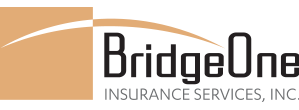Corporate / Business Plan
Executive Bonus
- An executive bonus plan is a supplemental retirement plan generally provided to key employees as an additional benefit. The employee is given a bonus that is taxable as income and to purchase a permanent life insurance policy that builds cash value to grow tax deferred. If properly structured, this setup of a life insurance policy may provide an attractive benefit to the executive in the form of cash value growth, as it will grow tax deferred and may be retrieved by the employee in income tax-free withdrawals and policy loans. This cash value can be used to supplement retirement income and/or other financial needs.
Key Employee
- Key Employee Insurance is life insurance for a key person in a business. The company may identify a person of paramount importance to their operation and purchase a life insurance policy on that person and become the beneficiary by paying the premiums. The reason behind this is because the role this person plays is crucial to the well-being of the company, and the death benefit will help the company survive the loss of the key person. It provides resources until the business is able to function on its own, or until the key person can be replaced. If the business cannot be resurrected after the loss, the insurance can also be used to close the business down in an orderly fashion.
Buy-Sell Agreement
- A buy-sell agreement is a legal document only used in partnership to protect the business in the case of separation of partners, such as retirement or death of a partner. It consists of a predetermined agreement to buy out the partner for a smooth transition of business management.
Defined Benefit
- A defined benefit plan states that a specific monthly amount will be paid out at retirement. It can take the form of an exact dollar amount, such as $200 dollars a month, or it can be calculated based on factors of length of service and salary. The most widely known example of a defined benefit plan is a pension.
Defined Contribution
- Defined Contribution plans include 401(k)s, 403(b)s plans, employee stock ownership plans and profit-sharing plans. The premise is that it does not guarantee a specific amount of benefits at retirement, but instead, the employee and/or employer both contribute to the employee’s individual account under the plan. As the funds in these accounts are then invested on the employee’s behalf, the ultimate balance will consist of the contributions plus or minus investment gains or losses. The value of the change will change based on the fluctuations in the value of the investments
401(K)
- The Internal Revenue Service states that a 401(k) plan is a defined contribution plan where an employee has the opportunity to make contributions from his/her paycheck either before or after tax, depending on the options available in the plan. The contributions in the account are then invested under the options provided in the plan. In certain plans, the employer will also make contributions by matching the employee’s contributions up to a certain percentage.
SEP IRA
- A SEP IRA (Simplified Employee Pension plan) is a type of traditional IRA with low administrative costs and flexible annual contributions that is relatively easy to operate, which is why it is best suited for small businesses and those who are self-employed. Only the employer makes contributions to this specific plan and he or she must grant an equal percentage of their respective salaries for all employees. The contributions, while being tax-deductible for the employer, also creates an incentive of commitment for the employees, as those funds are both tax deductible and deferred.


